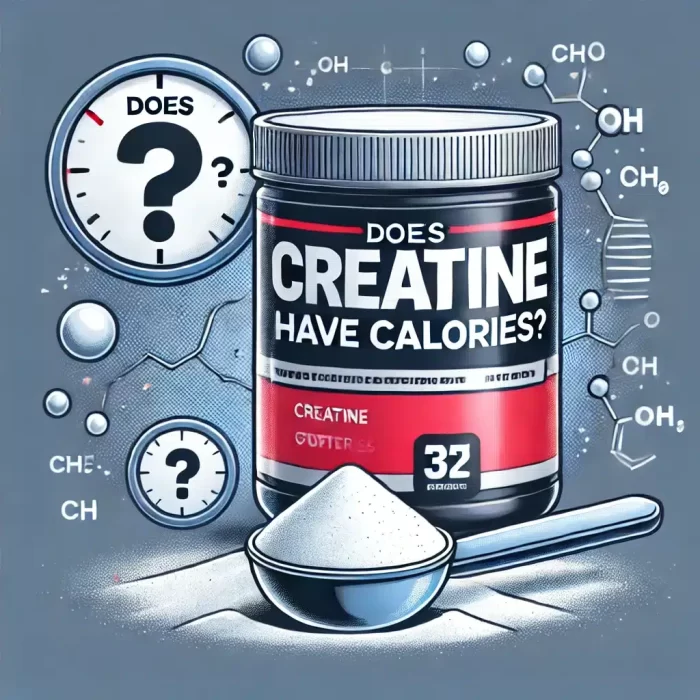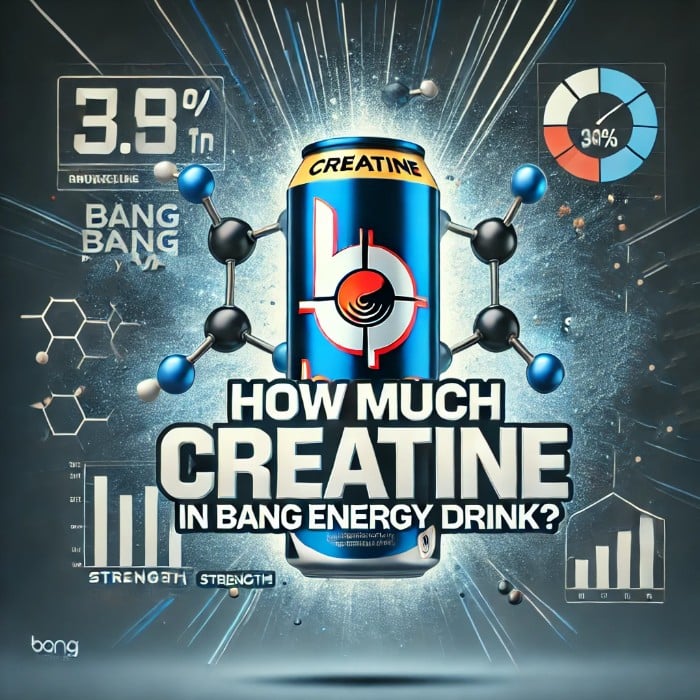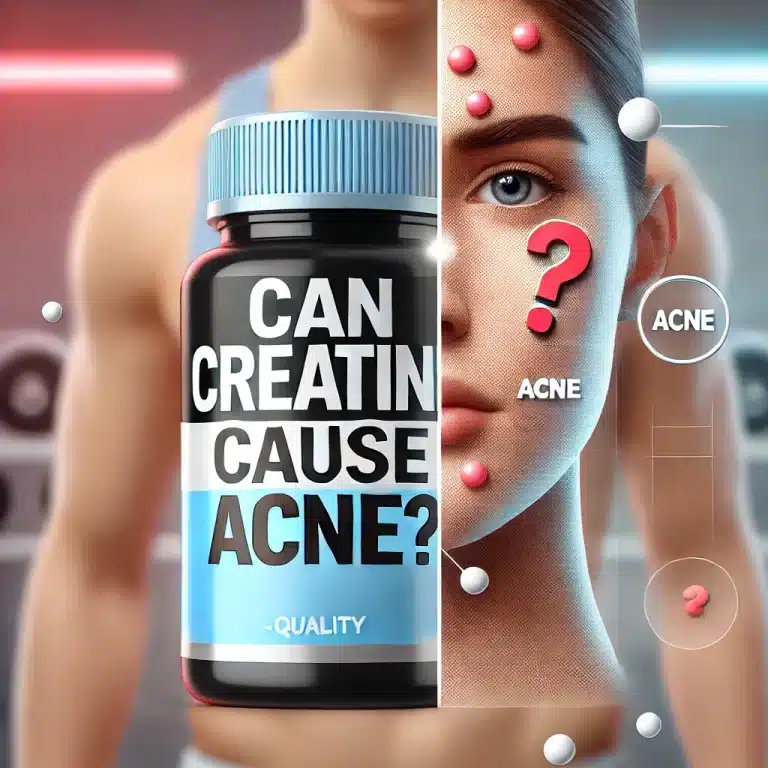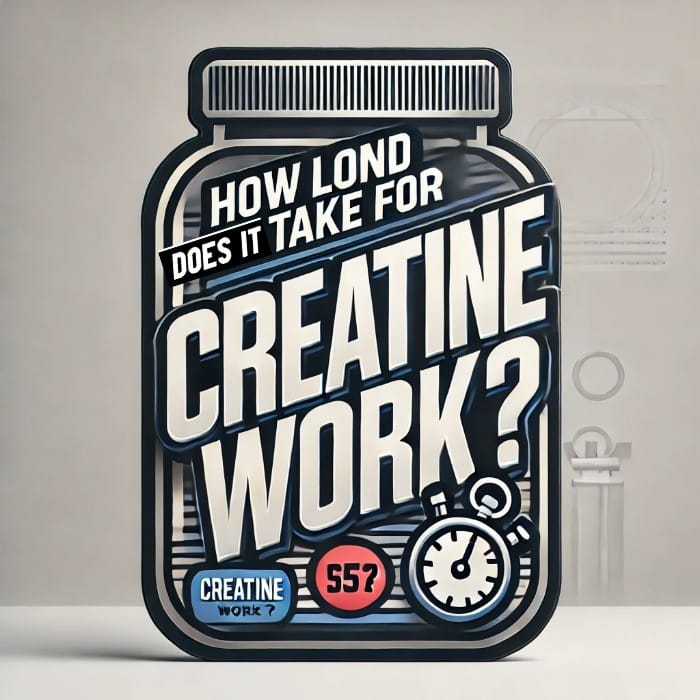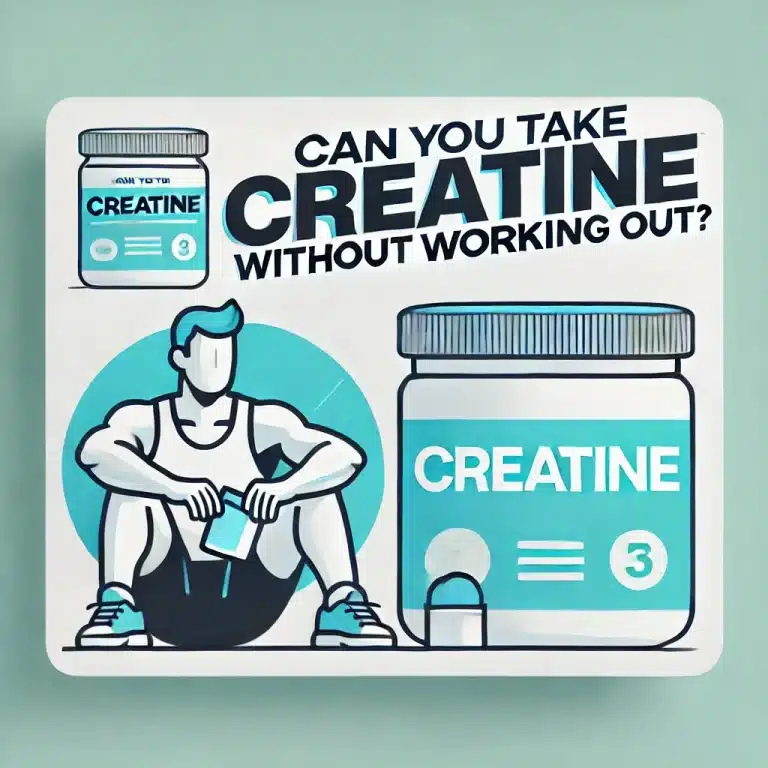Does Creatine Have Calories? A Nutritionist’s Take
Creatine is one of the most popular, studied supplements in all of sports and health. Famous for its performance-enhancing benefits, it can be used to help athletes, bodybuilders, and anyone interested in fitness whether beginner or advanced build strength and enhance endurance along with recovery.
But one oft-asked question is: Does creatine contain calories? If you are tracking your macros, losing fat, or just trying to manage energy intake, it is essential to know whether creatine counts towards your intake or not.
Short Answer: Pure creatine (creatine monohydrate) does not provide any calories. That said, there are a few things to think about when deciding whether or not your creatine supplement could be contributing to your energy intake. Let’s explore the details of creatine how it works and whether you need to keep track of it in your diet.
What Is Creatine and How Does It Work?
Creatine occurs naturally in the body and is consumed through certain foods, such as red meat, fish, and poultry. Creatine is also produced in the liver, kidneys, and pancreas where it is essential for energy production within cells.
Creatine is instead responsible for ATP (adenosine triphosphate) regeneration, the body’s main source of energy for high-intensity, short-duration activities, rather than providing calories.
This is how creatine works in energy metabolism:
- ATP Breakdown: While undergoing exercise, the muscle contracts and breaks down ATP, releasing a phosphate group and producing energy, perfuming ATP to ADP (adenosine diphosphate).
- Creatine Recycles ATP: Creatine donates a phosphate group which returns ADP to ATP, enabling muscles to keep generating explosive energy.
- Due to enhanced ATP availability, muscles can generate even more power and can endure extra progress (going from endurance and lifting results to exertion performance.
Because creatine does not metabolize into energy the way carbohydrates, proteins, or fats do, it does not count toward caloric intake.
Does Creatine Have Calories?
The scientific answer is no, creatine contains zero calories because it is not classified as a macronutrient. Creatine is metabolized differently than carbohydrates, proteins, or fats — those are broken down and processed to generate energy.
Calories are a unit of energy originating from macronutrients, and are derived from:
- Fat – 9 kcal per gram Carbohydrates – 4 kcal per gram
- Proteins – 4 kcal per gram
- Fats – 9 kcal per gram
Yet creatine is a nitrogenous organic compound not oxidatively utilized for energy generation You don’t burn creatine as fuel, though — it helps you regenerate ATP (adenosine triphosphate), the body’s main energy molecule. This helps them to contract and develop power over short segments of high-intensity workouts.
Creatine yields no direct energy, does not provide calories, and therefore does not impact caloric intake daily. In the same way, food or drink would, creatine supplementation would not influence your caloric balance, leading to loss (or gain) depending on whether you are seeking to lose muscle, decrease fat, or preserve weight.
Creatine is a non-caloric substance, yet it does affect body mass, due to factors like water retention and muscle mass growth. Hence, this is why creatine is never considered a fat gain supplement and is simply a potent ergogenic — it adds nothing in excess.
Why Doesn’t Creatine Contain Calories?
To see why creatine is calorie-free, we need to examine what it does inside the body. While carbohydrates, fats, and proteins are metabolized as ATP fuel, creatine has functional properties as an energy recycler, not an energy source.
Here’s how creatine acts in energy production:
- ATP Breakdown And Release Of Energy: During muscle contraction, ATP liberates a whereupon phosphate group, transforming it into ADP (adenosine diphosphate) and releasing usable energy.
- Creatine Donates a Phosphate Creatine phosphate donates a high-energy phosphate group to ADP to regenerate ATP.
- Greater Amount of ATP = More Energy for Muscles: ATP levels are refilled, and your muscles can do high-intensity work for extended periods, resulting in better strength, endurance, and recuperation.
Creatine does not produce energy itself but serves to allow the body to recycle energy more effectively, thus it does not lend itself to calories. This is why creatine is more accurately categorized as a performance-enhancing supplement rather than an energy source.
A major reason why creatine is calorie-free is that it is not metabolized like a macronutrient. After consumption carbohydrates, proteins, and fats get digested by enzymes and then absorbed and oxidized to release energy available to your body. For its part, creatine gets stored in muscle cells as phosphocreatine and is not metabolized in a way that provides usable calories.
Thus, creatine supplementation does not affect energy balance, metabolism, or fat storage it merely enhances performance through increased ATP availability.
Can Creatine Cause Weight Gain Without Calories?
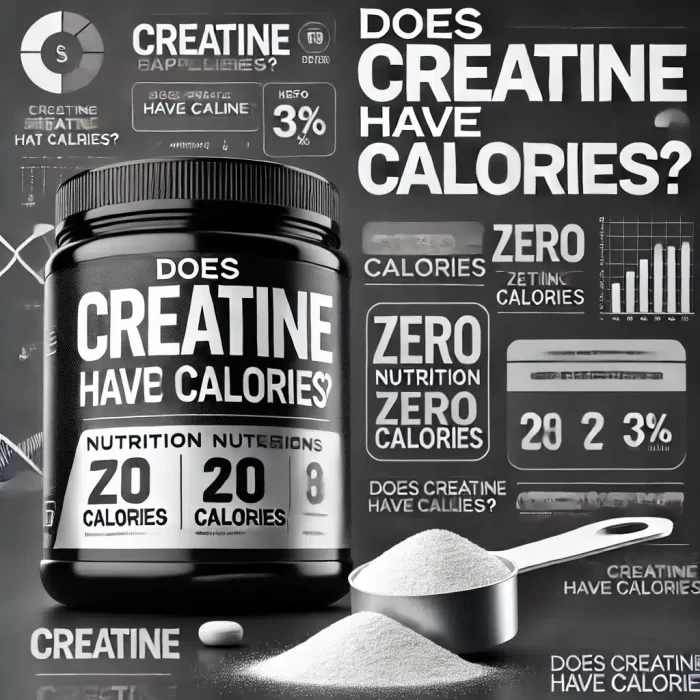
Yes, but not the way most people imagine. Because creatine has no calories, it cannot contribute to fat storage or gain nor can it lead to weight gain from excess caloric consumption. However, a common observation among many individuals who begin to supplement with creatine is the perceived weight gain when they step on the scale.
The truth is, that creatine impacts body weight via increases in water retention, muscle mass, and test performance — not via the addition of energy stores (calories) to the body. Here are the three primary reasons creatine can lead to weight gain without increasing calories.
1. Water Retention in Muscle Cells
One of the most well-known effects of creatine supplementation is that it retains water within the muscle cells. Creatine draws water into muscle cells, which increases muscle volume, hydration, and performance.
- This causes your body to hold onto more water causing a 1-3 pound gain in weight in the first week of supplementation.
- This effect is more pronounced for those in a “loading phase” (daily doses of 20 grams of creatine for 5–7 days, followed by a day dose, or “maintenance dose”).
- This extra water is stored inside muscle fibers, making muscles fuller, rounder, and more defined — not puffy — instead of contributing to bloating or flabby weight gain.
While subcutaneous water retention (water retention directly under your skin) can give off a puffy or bloated appearance, intracellular water does the opposite and helps improve both function and aesthetics of your muscles. This is NOT fat gain it is just hydration of muscle tissue – increased volume helps improve strength and endurance output.
When you begin taking creatine and start to notice the scale creeping up, it is important to understand that this is not excess fat nor excess calories, but simply more water being retained in the muscle cells.
2. Increased Muscle Mass Over Time
Creatine also increases muscle hypertrophy, aiding muscle growth and increasing body weight by optimizing training results through improved performance, strength, and recovery. This process causes increased lean muscle mass, which helps increase total body weight without increasing levels of fat.
- The reason creatine is so effective is simple: It allows you to lift more, and to do more reps, meaning more stimulus and subsequently muscle fiber hypertrophy.
- Muscle is denser than fat, so when you gain lean muscle, you could weigh more even if your body fat percentage drops.
- Creatine is also effective for those wanting to lose weight as it helps to maintain muscle tissue, which while on a calorie deficit, will stop muscle breakdown.
A person who weighs the same on the scale (5 pounds of muscle gained, 5 pounds of fat lost) has improved body composition even if they don’t weigh less. And this is why, when it comes to creatine, the measurements you review and the strength gains you experience—and how good you look in the mirror—will most likely be much more telling than the scale weight you see.
The important takeaway is that muscle gain and fat gain are different. Creatine aids in lean muscle growth, and because muscle is metabolically active tissue, it can lead to an increased resting metabolic rate (RMR), so you burn more calories at rest.
You will likely see a gradual upward trend on the scale but nothing to worry about; this is just a positive adaptation, as you have gained more muscle, which will lead to better performance, more strength, and improvements in overall body composition.
3. Improved Workout Performance and Training Volume
The third way creatine affects body weight without affecting calories is that it allows for more training output to occur. Creatine helps athletes and fitness enthusiasts by enhancing the body’s capacity to replenish ATP (adenosine triphosphate) in the body:
- Lift heavier weights
- Increase the number of reps you do in each set
- Increase feeling of stamina and trot without end.
- Feel better between workouts
Naturally, these performance benefits can make for greater caloric expenditure, and so creatine users likely burn more calories in total movement over time with their increased capacity to train harder.
This demand for repair and adaptation, stimulated by increased training intensity, provides the foundation necessary for subsequent muscle growth. In other words, someone may even gain weight on the scale, but it isn’t stored fat — it’s muscle.
Does Creatine Cause Fat Gain?
Creatine DOESN’T help you gain fat as:
- It is zero calories and does not contribute to the caloric surplus.
- Because any weight gain is water retention and lean muscle development—no fat.
- Creatine leads to better performance, and thus better training, and ultimately more caloric expenditure over time.
- It does not affect the fat-storage hormones, such as insulin, in a fat-gaining manner.
Of course, no one wants to gain weight and if that is a concern it is important to focus on body composition rather than what the scale says! Someone heavier but with more muscle and less fat will perform better in terms of metabolism and physical performance than someone with a lower body weight but with less muscle.
How to Minimize Water Retention from Creatine
For those worried about short-term water retention, there are several ways to alleviate or reduce this phenomenon without compromising the benefits of creatine supplementation:
- Tips for Taking Creatine: Drink Plenty of Water: Enough water must be consumed so that creatine can work properly, and this also prevents unnecessary water retention.
- Consider smaller daily dosing: Instead of doing a loading phase (20g/day) for a set number of days, build up slowly at 3-5g per day, benefiting muscle before the quick addition of water leads to weight increase.
- Keep a Healthy Diet: A moderate sodium intake and consumption of whole foods with high nutrient density can help control fluid balance in the body.
- Combine with Resistance Training: Physically active muscles use creatine more effectively, which minimizes any excess water retention.
- Stick to Pure Creatine Monohydrate: Some creatine blends are combined with a sodium or sugar-heavy blend or fillers that might cause additional bloating or water retention.
For the majority of people, the temporary weight gain from creatine is an indication that the supplement is working and should not be regarded as a negative sign. The water retention from this dissipates over time, and your improved strength, endurance, and lean muscle mass more than offsets any small weight changes.
Does Flavored Creatine Contain Calories?
Creatine monohydrate itself contains no calories and does not contribute to your total caloric intake. However, most flavored creatine supplements do contain other ingredients, which can contribute some calories from carbs, protein, or sugar substitutes. These additives may not play a role in the broad scope of your diet, but they are something to keep in mind if calorie counting and macro management are a part of your routine.
Sweeteners, flavor enhancers, or added performance-supportive compounds are some of the main reasons flavored creatine can contain calories. Some manufacturers accomplish zero-calorie flavored creatine by using artificial sweeteners, while others rely on adding sugars or fast-digesting carbohydrates to improve taste and absorption.
Common Ingredients in Flavored Creatine That May Add Calories
| Ingredient | Does It Add Calories? | Effect on Nutrition |
|---|---|---|
| Dextrose, Maltodextrin (Carbohydrates) | Yes – 10-50 kcal per serving | Provides quick-digesting carbohydrates for energy but may spike blood sugar levels |
| Artificial Sweeteners (Sucralose, Aspartame, Acesulfame K) | No – Zero Calories | No caloric impact, but some individuals may experience digestive sensitivity |
| Sugar Alcohols (Erythritol, Sorbitol, Xylitol) | Essential for hydration but does not contribute to caloric intake | Fewer calories than sugar but can cause bloating in large amounts |
| BCAAs (Branched-Chain Amino Acids) | Yes – ~4 kcal per gram | Provides protein-derived calories and supports muscle recovery |
| Electrolytes (Sodium, Potassium, Magnesium) | No – Zero Calories | Essential for hydration but do not contribute to caloric intake |
Flavored creatine supplements that contain added sugars, carbohydrates, or protein-based compounds will have a higher caloric content compared to pure micronized creatine and monohydrate, which remains calorie-free.
How Many Calories Are in Flavored Creatine?
Available flavored creatine products should have their exact calorie content listed based on brand and formulation. However, as a general idea for some of the most common types of flavored creatine, check below:
- Creatine monohydrate, unflavored – 0 calories
- Flavored creatine with artifical sweeteners – 0-5 cal per serv.
- Sugar- or carb-inclusive flavored creatine — 10 to 50 calories per serving.
- Creatine with a carbohydrate transport system (e.g., dextrose, maltodextrin) – 50-100+ calories per serving.
Most pre-workout and post-workout creatine blends are designed with fast-digesting carbs such as dextrose or maltodextrine, which accelerate the absorb ability of creatine into muscle cells. These combinations, although potentially useful in increasing creatine absorption, also come at the cost of added calories, which may or may not be desirable for an individual depending upon their dietary goals.
How to Determine if Your Flavored Creatine Contains Calories
If you are worried about extra calories in flavored creatine so how do we know if your supplement adds to your total calories?
- Check the Nutrition Facts Label, if they have calories, carbohydrates, or protein listed, then you need to factor in these with your daily total.
- CHECK THE INGREDIENTS LIST: Any creatine supplement that contains added sugars, amino acids or sugar alcohols will provide some calories per serving.
- Choose Zero-Calorie Flavored Creatine: Certain brands make use of artificial sweeteners such as sucralose or stevia that increase the taste devoid of adding calories.
When making training and diet decisions: If you are leaning towards fat loss and remain in a caloric deficit, go for pure creatine or zero-calorie flavored creatine. Unless you are looking for muscle gain and performance, where a powdered carbohydrate with your creatine can be beneficial in recovery.
For athletes interested in replenishing glycogen post-exercise, flavored creatine supplements containing carbs or proteins may be beneficial, though those needing to prioritize macro tracking or calorie reduction would do best to avoid flavored creatine altogether in favor of unflavored creatine monohydrate or sugar-free flavored alternatives.
Should You Track Creatine in Your Macros?
If you are using macros to manage fat loss, muscle gain, or improve performance, you might question whether or not creatine counts towards your daily macros. The short answer, however, is: no, pure creatine monohydrate contains no calories and doesn’t contribute to your carbohydrate, protein or fat intake at all (Hoffman, 2020).
Some flavored creatine supplements or creatine blends do have other things, however, that may factor into your total calorie intake, though, so they are worth considering if you are tracking your macros meticulously.
Why Doesn’t Pure Creatine Need to Be Tracked?
Macros are short for macronutrients (carbs, proteins, and fats), the key calorie-bearing substances in food and what you consume for this energy. However, creatine macronutrient is not a big nutrient it is a nitrogenous organic compound that acts as a significant role in improving of ATP (adenosine triphosphate) re-synthesis in muscle cells.
Creatine doesn’t get broken down as a fuel source (unlike carbs, proteins, or fats, which are metabolized for energy). Instead, it recycles energy at the cellular level so that muscles can perform better during high-intensity exercise.” Since it does not provide energy via a metabolic process, it lacks caloric value, and need not be accounted for in matters of macros.
Creatine is not oxidized like macronutrients; instead, it is deposited in muscle tissue as phosphocreatine. Meaning, while it impacts energy in production and muscle performance, it doesn’t impact total caloric intake, therefore we don’t need it in the macro front.
When Should You Track Creatine in Your Macros?
Although you do not need to track pure creatine monohydrate, many creatine supplements contain other ingredients that can add up in their caloric contribution. If your creatine product contains carbohydrates, proteins, or sugar alcohols, be sure to log those nutrients as part of your daily macros.
Common Additives in Creatine Supplements That May Require Tracking
| Ingredient | Does It Affect Macros? | Effect on Nutrition |
|---|---|---|
| Pure Creatine Monohydrate | No | Does not contain calories or macronutrients |
| Dextrose, Maltodextrin (Carbohydrates) | Yes | Adds calories from sugar, affecting carbohydrate intake |
| Branched-Chain Amino Acids (BCAAs) | Yes | Provides calories from protein, affecting protein intake |
| Artificial Sweeteners (Sucralose, Aspartame, Stevia) | No | Zero calories do not impact macronutrient count |
| Sugar Alcohols (Erythritol, Xylitol, Sorbitol) | Maybe | Can contain small amounts of calories, depending on type and quantity |
If your creatine supplement has carbs, protein or sugar alcohols then account for those both in day macros. If you take unflavored creatine monohydrate without anything added, tracking it is not necessary.
How to Determine if Your Creatine Needs to Be Tracked?
If you don’t know if your creatine supplement counts toward your macros, consider this:
- Nutrition Label: If it falls into the category of calories, carbohydrates, or protein, and this is included on the nutrition label, it should be counted toward your daily macros.
- Check the Ingredients List: Any creatine supplement that is mixed with dextrose, maltodextrin, or BCAAs will contribute to your carbohydrate or protein intake.
- Use 100% Pure Creatine Monohydrate: For those who don’t want to have to worry about tracking their creatine, unflavored creatine monohydrate is the way to go, as no additional ingredients are contributing to caloric intake.
- Consider Your Fitness And Nutrition Goals: If you want to remain in a deficit for fat-loss reasons, choosing a zero-calorie creatine is a no-brainer. If your aim, though, is to refill on glycogen after training, a carbohydrate-fortified creatine supplement may be of benefit.
Specific creatine formulations include fast-acting carbohydrates to help transport and store creatine and glycogen, which will help improve muscle recovery and growth. If you do want to follow your calories closely, however, tracking everything you add to your water — just not the creatine — is the smart way to do it.
Does Creatine Affect Fat Loss or Muscle Gain If It’s Not Tracked?
Creatine remains among the most studied and effective supplements for increasing muscle strength, endurance, and recovery. However since it is calorie-free, many people question if it affects fat loss or muscle gain if it is not part of their diet plan.
In short, the answer is, sure, creatine supplementation can facilitate positive changes to body composition and performance outcomes, even if you’re nowhere near the “macros tracker” thing. But creatine itself does not store any energy content, so it does not directly add to calories consumed, however, it is known to help with muscle retention, performance, and overall metabolism, so it helps in indirectly supporting both fat loss and muscle gain.
How Creatine Supports Fat Loss Without Calories
While creatine does not supply calories in the form of energy, it has a powerful influence on metabolism and fat loss effort. Here’s how:
1. preserves lean muscle mass during a caloric deficit
- In a caloric deficit for fat loss, there is always a risk of muscle loss, particularly if protein or resistance training volume is low.
- Supplementing with creatine, in this context, acts as a protector against muscle breakdown through intracellular hydration and ATP availability so that when caloric intake is limited, muscles can still perform optimally.
- Finally, studies indicate that creatine supplementation can aid in preserving lean muscle mass in dieting individuals, making creatine a valuable strategy for maintaining strength and metabolic activity while losing weight.
2. Improves Training Performance and calorie expenditure
- Creatine allows for greater intracellular ATP production which leads to better training harder and longer.
- Working out harder not only burns more calories in a shorter time frame but also increases your energy expenditure later, which, in turn, can lead to more overall fat loss.
- Creatine itself does not burn fat, however, it allows you to train resistance more effectively, which produces higher energy output and greater fat-burning potential.
3. Supports a Higher Resting Metabolic Rate (RMR)
- Lean muscle is more metabolically active compared to fat; hence, preserving or gaining lean muscle mass results in a higher resting metabolic rate (RMR).
- The more muscle mass a person carries the more calories they will burn during rest which assists with long-term fat loss without requiring extreme caloric restriction.
- Since creatine aids in muscle retention during a fat-loss phase, it also protects against the slowdown in metabolism that comes with that fat loss, which allows the fat loss to remain effective over the long run.
While creatine itself is not a fat burner in the traditional sense, it acts as an essential tool to support you in optimizing fat loss without sacrificing strength and performance, and as such should be a worthwhile inclusion for any fat loss phase.
How Creatine Supports Muscle Gain Without Being Tracked
Even though creatine itself does not contain any calories in a diet, it is one of the most powerful supplements designed to produce muscle gain. Here’s why:
1. Increasing Strength And Volume Of Training
- The most important feature of creatine is that it helps you train better, which includes lifting heavier weights and more reps per set.
- More training volume = more muscle fiber recruitment + more muscle hypertrophy (the key factors in building muscle over time).
- While there are no additional calories from creatine, it enables better progressive overload and, ultimately, more muscle growth without having to consume more calories.
2. Improves Muscle Recovery and Reduces Fatigue
- Because creatine leads to more rapid replenishment of ATP, it increases the rate of recovery and allows us to reduce rest times between sets, as well as increase the training frequency.
- This, of course, is essential for the efficient repair of muscle tissue which leads to quicker muscle gains and enhanced performance.
- Creatine helps to bypass the reduction in muscle fatigue and muscle soreness, allowing for constant and quality sessions in the gym that need to create an increase in muscle size.
3. Enhances Muscle Cell Hydration and Growth Potential
- Creatine pulls water into muscle cells, increasing cell volume, which improves anabolic signaling.
- This hydration effect enhances muscle protein synthesis, making the nutrient absorption better for muscle growth over time.
- Though creatine doesn’t add macronutrients necessary for growth, it optimizes the environment for that growth anteriorly, rendering it a powerful supplement for maximizing a potential that already exists.
Should You Track Creatine to Optimize Body Composition?
Tracking creatine in your macros is pointlessly excessive, as it provides no calories. However, it is vital for your body composition goals because of its indirect impacts on training performance, muscle retention, and recovery.
Creatine, therefore, helps to maintain lean mass and strength during fat loss and ensures that fat removal is effective and durable. In terms of muscle gain, creatine increases strength, endurance, and recovery, allowing for a higher volume of training, increasing overall intensity, and progressive overload over the long term.
Creatine supplementation will benefit muscle retention and performance regardless of whether you track calories and macronutrients to reach specific physique-related goals.
Final Thoughts: Should You Worry About Calories in Creatine?
- Creatine monohydrate is calorie-free, which will not affect daily caloric intake.
- If you gain weight from creatine, it is from water retention and increased muscle size — NOT fat gain.
- Sugars or proteins may be present in flavored creatines and should be included in daily intake.
- Creatine helps with performance in the gym, decreasing fat mass while increasing muscle mass (both of which are helpful no matter how many calories you are consuming).
Creatine is one of the most effective supplements available, without the additional caloric cost, so it is highly beneficial for those whose focuses are strength, endurance, or body composition.
